Bob Saenz has been writing professionally since 1995. He's optioned several original scripts and sold 8 to production companies and cable TV networks. His first produced film, “Help for the Holidays” (for Levinson Productions), was the Hallmark Channel’s #1 rated original film for 2012 and the 10th highest rated original Hallmark film of all time. Bob is also a SAG-AFTRA actor with numerous film and television credits.
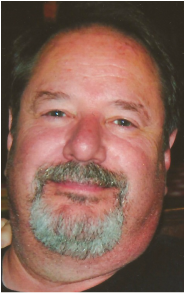 Bob Saenz
Bob Saenz My name is Bob Saenz. I've been a working screenwriter and actor for the last 20 years. My produced/credited films as a writer include, the Larry Levinson produced “Help for the Holidays”, “Cupid’s Bed & Breakfast”, “On Paper”, “Rescuing Madison”, “Romantically Speaking”, and the “Right Girl”, all for Cable TV Networks. I sold two other original scripts in 2014, “On the Move” an off center romantic comedy and “Extracurricular Activities” a dark comedy thriller. I optioned another to a New York Production Company, the big budget caper comedy “Baggage”, and have three other original specs scripts and three series ideas in play in LA. I have been hired to do adaptations, rewrites and polishes on film scripts and television projects for Producers, Directors, and Production Companies in Hollywood and have optioned six of my original scripts to Hollywood Production Companies in the past. My acting roles include Hallmark’s “Valley of Light”, Francis Ford Coppola’s “Jack”, David Fincher’s “Zodiac”, Finn Taylor’s “The Darwin Awards” and the upcoming "Unleashed", "Helicopter Mom", and Chris Ford’s “The Village Barbershop”, among dozens of others. I also had a six year run as the recurring character Sgt. Carl Hoskins on the CBS TV show “Nash Bridges”.
How did you get started in screenwriting?
I was acting on the series Nash Bridges and thought, "I can write this well." Of course I couldn't, because writing a script is not only an art, but a lot of work and discipline and education to do well. Took me a while to get the hang of it, but ended up optioning a script about a year after I started. It never got made, but I did get an invaluable education about how all of this works. Took me years more and a lot of close calls and rejection to finally get my first produced film.
 "Help for the Holidays" poster
"Help for the Holidays" poster Can you explain the process of selling a script?
Sure. After writing it, you need to put it away for a couple of weeks and then reread it. You'll find all kinds of things you can do to improve it. That's where a rewrite comes in. Some professional writers do as many a six of these before sending it out. I know it seems like a lot of work, but you always want to send your best because you only get one chance with a script with any producer. Once you send it, if a producer likes it he will option it. An option is like somebody renting your script for a defined time period, normally a year. During that year, he will look for funding (money to make the film) and try to get interest from directors and stars. If he doesn't get funding or interest, after the year you get your script back and you get to keep the money they gave you to rent the script and you can sent it out again. If they fund the film and want to make it, then they buy the script from you at a price you agreed on when they optioned it.
What part of screenwriting do you find most difficult?
The time it takes to do it right. A good script can take three to six months to write and be ready to send out. You have to be disciplined enough to work on it every day. The other difficult part is the rejection. As a writer you hear the word NO much much more than you hear YES.
What was the most rewarding moment of your career so far?
Watching my first produced film on the screen. It was a culmination of a lot of years of hard work and dreams.
Who are your favorite screenwriters? What are your favorite movie or TV scripts?
You may not have heard of some of these people, but they write fabulous scripts: Gary Whitta. John August. Mike Sweeney, Nick Creature, Gary Graham, Mike Maples, Emily Blake, T.A. Snyder. I'm sure I've left some people out, but these are the ones off the top of my head. These writers work in the industry every day doing writing on projects for every major studio or TV network.
It's not so much what I like, that you, as a new writer, should read, but go on the the internet and look for the script from your favorite films and TV shows (you can find them) and read them. You'll learn so much from that exercise.
Do things. Get out and experience life... Great writers draw on their life experiences and if you don't have any, you don't really have much to write about.
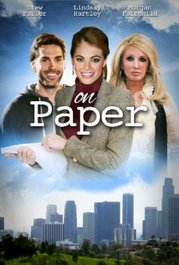 "On Paper" poster
"On Paper" poster It's a delicate balance. Being able to be original but remain in the confines of the three act story. What I mostly do is try to write a great story first and not worry about all the other stuff. I find if you write a great story you want to see and what you think your audience wants to see, the story points you need fall together naturally.
What’s next for you? What projects or screenplays are you working on now?
I'm reading three novels and couple of scripts to see if I can get the jobs adapting the novels or rewriting the scripts. I have a film I wrote filming in February of next year and another that may go in the summer. I'm writing a new Christmas film for Hallmark, at least I hope they buy it.
What advice or tips would you give to aspiring screenwriters (especially young ones):
Write and write and write. You learn by doing. Take classes (like you are) and learn about screenwriting. But again... write scripts. As many as you can.
Any activities/exercise you’d recommend to aspiring young screenwriters?
Besides writing, you should also read as many scripts as you can. See what they did right. See what you think they did wrong and learn from it. Live a full life. Do things. Get out and experience life. Take classes on the subjects you want to write about. Climb mountains. Travel if you can. Meet new people. Get out. Don't stay inside just writing or playing video games or watching TV. Great writers draw on their life experiences and if you don't have any, you don't really have much to write about.
You can find Bob on IMDb and Twitter @BobSnz, or visit his website and blog at bobsaenz.com.

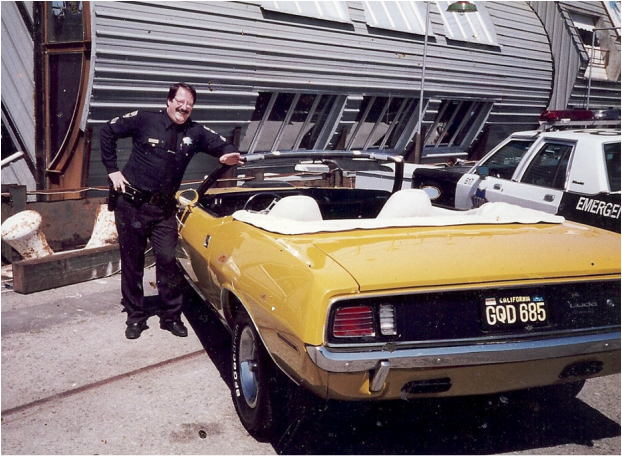

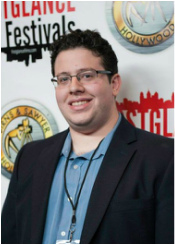
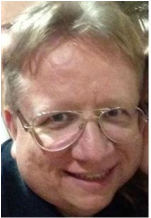

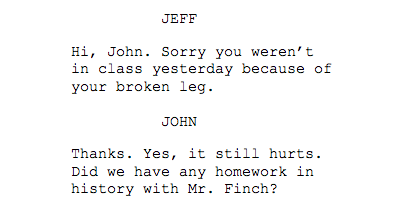
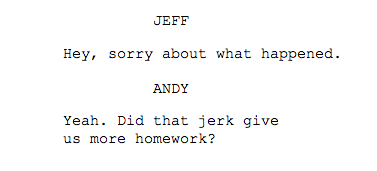

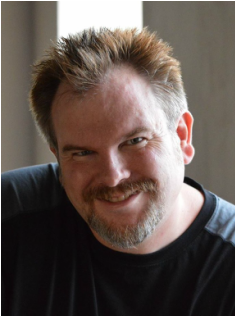
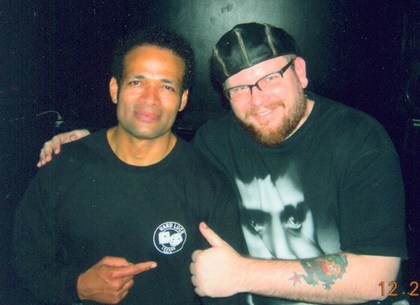

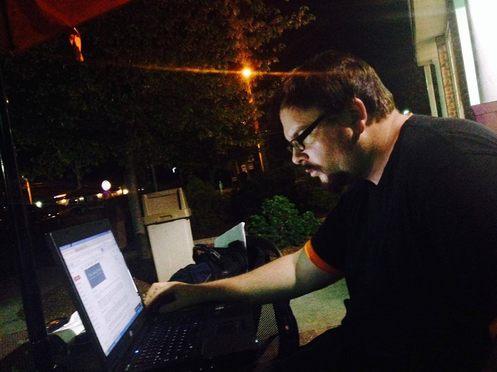
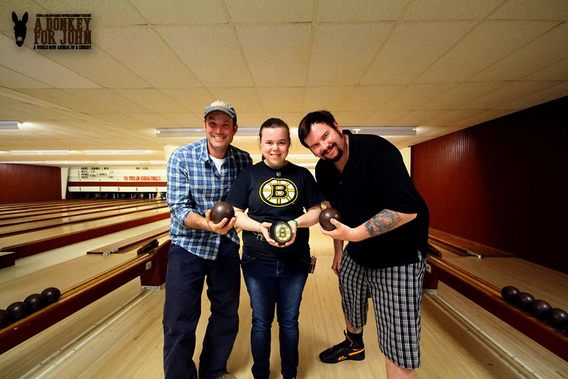
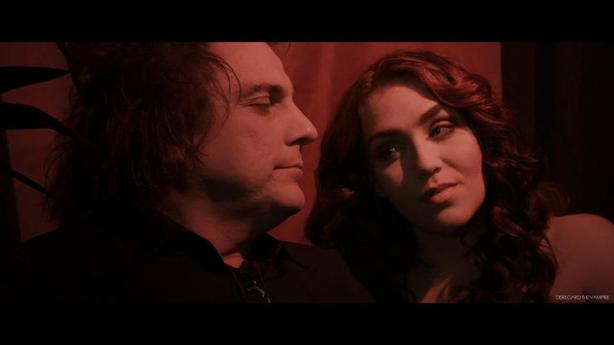

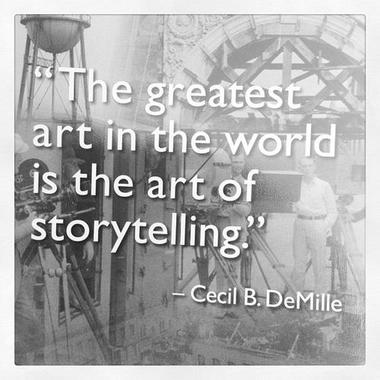

 RSS Feed
RSS Feed
